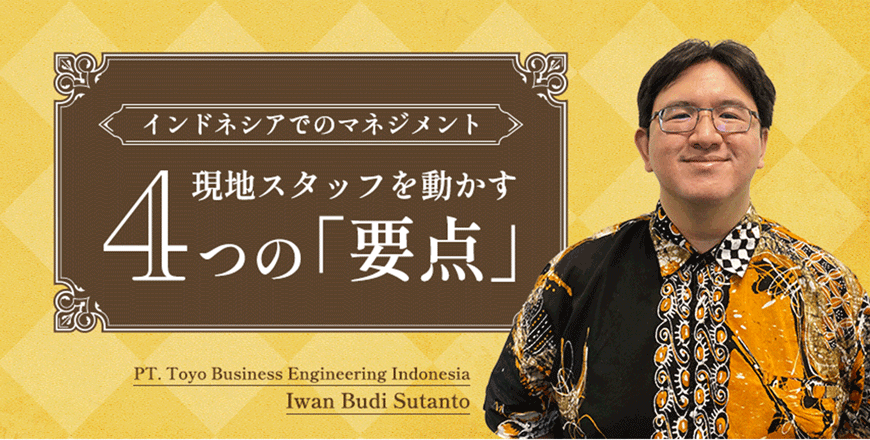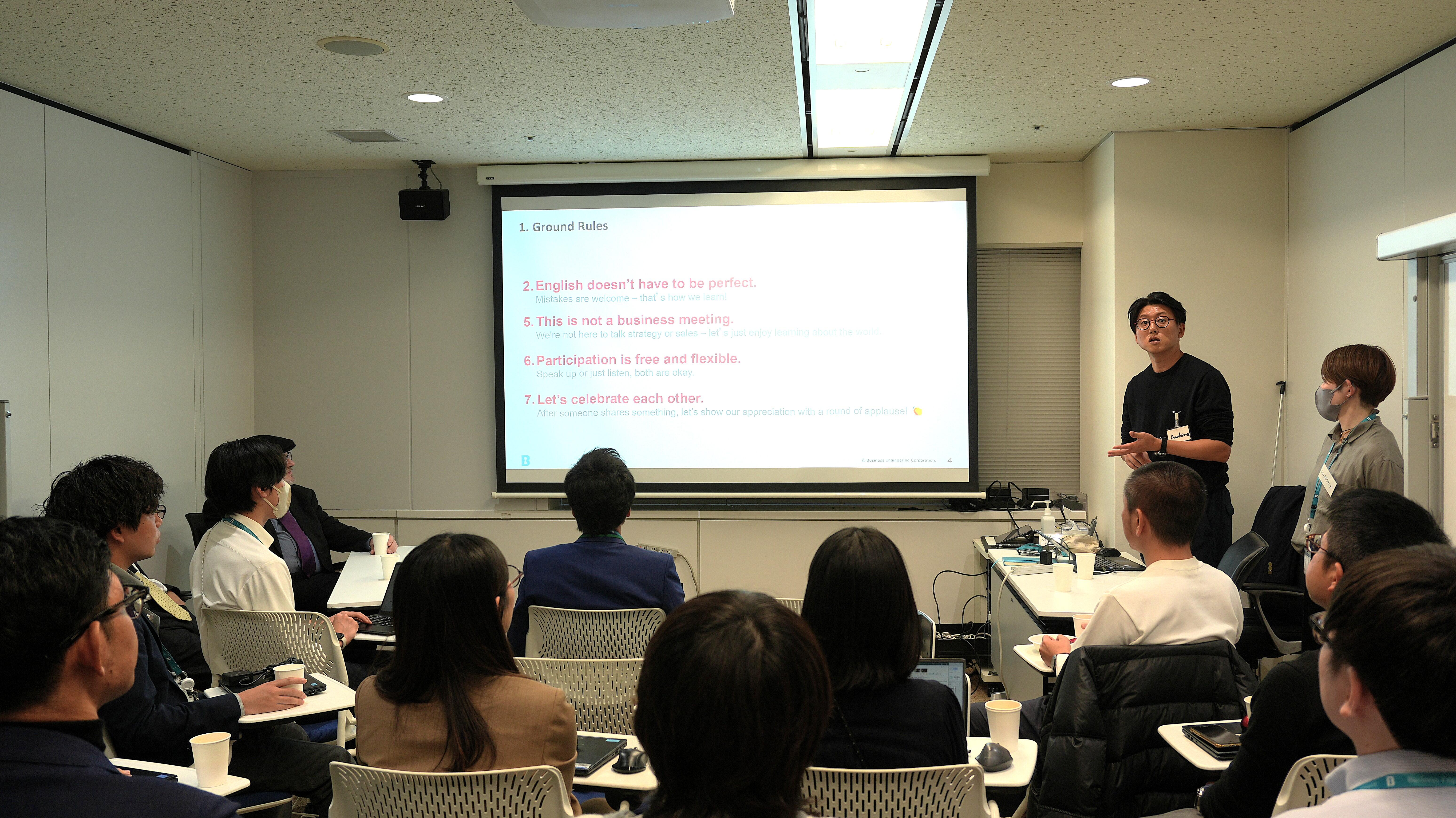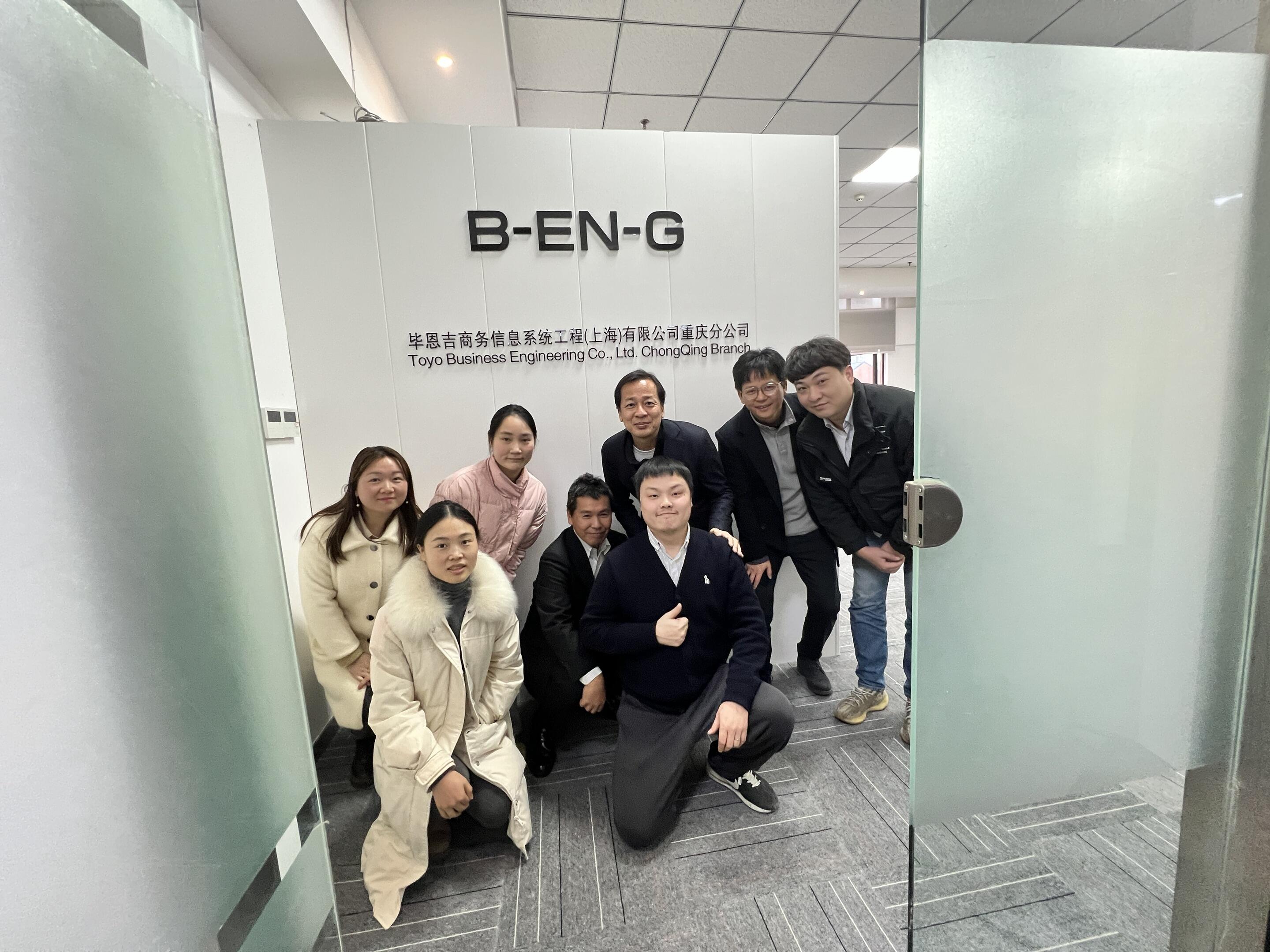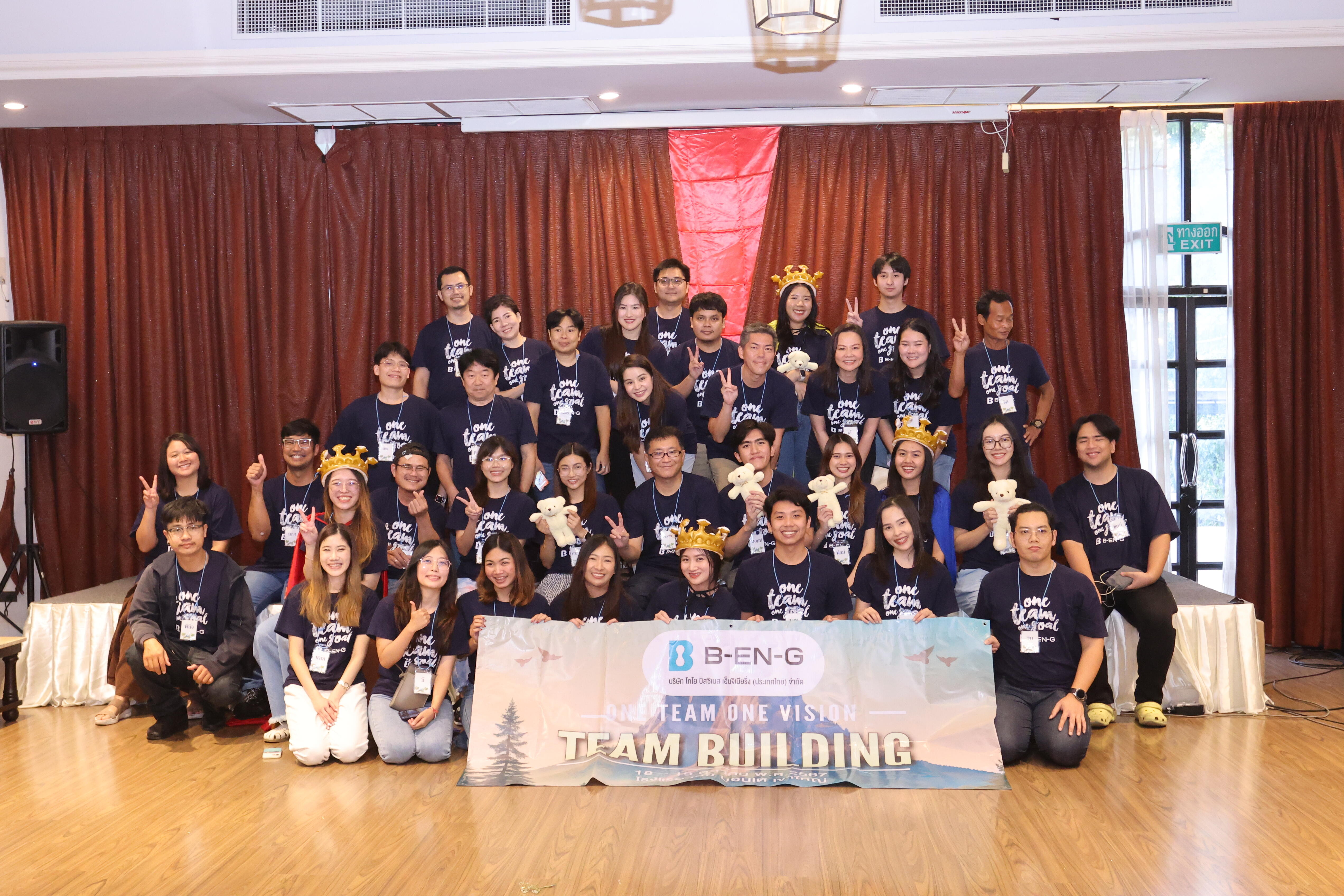Indonesia boasts the world's fourth largest population of 270 million people and is blessed with abundant natural resources. It continues to enjoy stable economic growth, with companies from around the world investing and expanding into the country one after another. However, when it comes to expanding business, it is often plagued by local circumstances, including differences in culture and temperament, as well as frequent natural disasters. An employee of B-EN-G Indonesia, which supports Japanese companies in implementing systems in the country, talks about the challenges Japanese companies face and the worries they face on the ground, as well as the key points of management for the success of system implementation projects.
Why IT utilization is difficult in Indonesia
Indonesia is also known as the "leader of ASEAN" due to its economy and population size. With an abundant labor force of over 60% of the working-age population (15-64 years old), Indonesia is one of the leading ASEAN countries, blessed with natural resources such as natural gas, oil, and minerals. In this country, Iwan Budi Sutanto (Iwan) of Business Engineering Corporation-EN-G Indonesia(hereinafter referred to as BID), the Indonesian subsidiary of Business Engineering Co., Ltd., is developing a business supporting the introduction of systems and the use of IT for Japanese companies. Originally from Indonesia, he came to Japan after graduating from university. He gained experience as an IT engineer at a group company of a major Japanese manufacturing company, and after returning to Japan, he joined BID, hoping to utilize his Japanese language skills and IT skills.
Ivan has seen many Japanese companies using IT on-site. Since the COVID-19 pandemic, remote work has become common in the country, and it has become more common for people to be unable to go to the site, so he has received more enquiries about installing a system to collect data from manufacturing sites. However, when trying to actually move forward with an implementation project, he has often seen situations where communication between Japanese managers and local staff is poor, causing projects to run into difficulties.

"The Indonesian subsidiary does not have a system in place to promote IT projects, and many of the Japanese managers who are posted to Indonesia are people with experience in manufacturing or who specialize in accounting, and it seems that there are no people with a background in IT. In addition to the mismatch in the level of IT knowledge between the two parties, there are also difficulties in communicating with each other, and many clients seem to be troubled by the inability to cooperate with each other to move forward toward set goals."
How do you communicate with local staff?
Human resource issues are difficult to solve overnight. So how can we overcome the communication gap? Ivan lists four points for Japanese managers to keep in mind when working with local staff.
The first is to communicate with the assumption that there will always be differences in perception. Indonesia is made up of over 13,000 islands, and the official language is Indonesian, but there are countless local languages, such as Javanese and Sundanese, on the island of Java. It is essential to recognize that it is a multilingual society.
"There are many local languages, and even with an interpreter, there are limits to understanding nuances using only English. For this reason, it is of utmost importance to constantly confirm that Japanese managers and local staff have the same goals and are on the same page. If this does not work out, the project will move in a direction that is different from the goal," says Ivan.
The second is to develop management that is suited to the temperament of Indonesians, who place great importance on group activities and cooperation. For example, when a Japanese manager asks "Did you understand?" after giving an explanation, local staff tend to reply "Yes" or "I understand" even if they do not fully understand. "In many cases, people hide their true feelings because they think it is rude to reply 'I don't understand' when someone has made an effort to explain, or they are afraid that if they reply 'I don't understand' and are asked to explain again, they will interrupt the flow of work."
Even though they don't actually understand the explanation, they start working based on their own interpretation, which results in work that is completely different from what was explained, which can easily lead to problems. Ivan advises, "You can never be too detailed in your explanations to local staff. It's important to not only create and distribute manuals on a PC, but also to be creative and explain things by drawing diagrams and illustrations on a whiteboard or paper." He also says that it's important to get a concrete grasp of the current situation by asking them to "show me what you've done" when checking on the progress of work.
Local circumstances where Japanese common sense does not apply
The third point is to always think of ways to motivate local staff. "In the second point, I mentioned the temperament of Indonesians, but even if analog work is inefficient, many local staff think, 'that's fine,' and are not motivated to try new things," says Ivan. The Japanese headquarters often does not understand the status of projects at local subsidiaries, and the workload of local staff who are already dealing with various existing tasks remains high, which is also one of the reasons why they dislike change.

"Even if it's a new system designed to reduce the workload of local staff, if there's even the slightest problem during data entry tests before the system is introduced, they'll stop entering data or give up, and the tests won't progress. It's essential to carefully communicate the benefits of the system, such as making their work easier and reducing the chance of mistakes, and to devise management methods to motivate them."
The fourth is to accept "local circumstances" where Japanese common sense does not apply. One of these is the traffic congestion in Jakarta, the capital of Indonesia, which is said to be the worst in the world. With few detours and limited transportation options other than buses, it is said to be extremely difficult to get around on time. The other is the frequent occurrence of floods called banjir. During the rainy season from October to March, sudden heavy rains occur one after another, and roads quickly become flooded.
"In Japan, it is common sense to start work at a fixed time and start meetings at the appointed time, but in Indonesia, that is difficult. If you get caught in traffic, there is nothing you can do. Even if you leave home at 4 or 5 a.m., with plenty of time to spare, you will end up arriving at your destination at 10 a.m., even if it is a destination that would take you two hours if there was no traffic jam. Also, if there is flooding, the roads are closed and you can no longer move," says Ivan. Even if local staff who are late seriously explain that it is because of traffic jams or floods, Japanese managers do not believe them, and relationships often become strained. "Accept that things do not go as planned, create an atmosphere where staff can talk easily, and build trust," advises Ivan.
Honest opinions expressed towards the end of the project
As an Indonesian IT engineer who can speak Japanese, Ivan has acted as a bridge for communication between Japanese managers and local staff and supported the implementation of the system.
For example, in one case where a Japanese company was trying to promote paperless operations at the request of its Japanese headquarters, the following happened. As the project to use tablet devices to achieve paperless operations was nearing the end of its implementation, Ivan received a call from a local staff member saying, "We're actually having trouble." The project had been moving forward with specifications that had been changed from the original paper form layout to make it easier to enter data on tablet devices, but the original form layout had been agreed upon with the client, and so it was necessary to submit the data on paper.

"Apparently, I was unable to say to the Japanese manager, 'We have a client who requires paper output.' I'm glad I found out before the project ended, but it seems that in many cases, communication with local staff is not as good as Japanese managers think."
Ivan and other members of BID began participating in meetings with their Japanese clients even before the system was introduced, and they aim to not only act as interpreters between Japanese managers and local staff, but also to act as intermediaries between them to promote communication and deepen understanding on both sides.
For Japanese managers, they give advice on how to speak to people while taking into account the Indonesian temperament. In the previous example, they would not blame the person for not reporting the mistake early, but would praise them for finally reporting it. On the other hand, by conveying the Japanese manager's thoughts to the local staff in a way that resonates with them, they support the creation of a system in which projects can be carried out with the same goals and awareness as the Japanese manager.
Furthermore, BID provides thorough support to ensure the system continues to operate even after the system goes live. As in other regions, in Indonesia, it is highly likely that Japanese managers will be transferred or local staff will resign, but in such cases, BID staff will explain the system itself and how to operate it to the new hires, so that the system does not become a black box.
A "companion" who helps overcome challenges
Indonesia has announced a plan to gradually relocate the capital city of Jakarta to another location from 2024 in order to overcome urban issues such as severe traffic congestion and overcrowding, and to attract foreign investment. The country is also drawing high expectations from both within and outside the country, with a national vision of becoming the world's fifth largest gross domestic product (GDP) by 2045. The country will need to seek further development while also facing realities such as the gap between rich and poor, the gap in education, and frequent natural disasters.
BID, which is based in the country, says that its track record of supporting the system introduction and utilization of IT for over 70 Japanese companies, mainly in the manufacturing industry, is a major strength. Ivan emphasizes, "Not only do we draw up a roadmap to lead projects to success, but we can also propose various solutions, so we support our customers in a wide range of fields and strive to expand their business."
"Compared to China and Thailand, I think there are still areas where Japanese companies lack knowledge about their operations in Indonesia. If you consult with BID, I think there are many things we can contribute to solving your problems," says Ivan. Ivan and the other members of BID intend to fulfill their role as "companions" who help Japanese companies overcome their challenges.
(Text: Kyodo News Digital)
*This interview is current as of September 2022.








